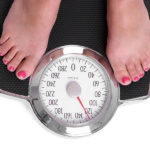By David Blyweiss, M.D., Advanced Natural Wellness
As you probably already know, I travel a lot.
And, while I enjoy my time on the road, nothing is better than coming back home to my own house, my own bed. After all, home is a place of respite and calm; a place where I can retreat and recharge.
But for many folks, home contains a hidden health risk.
According to scientists, environmental toxins can be found in every room of your home. Carpet, countertops, kitchenware, and personal care products all contain or emit chemicals that build up in the body and could ultimately make you sick. In fact, you’ve got more than 700 chemicals stored in your body, many of which are linked to an increased risk for heart disease, cancer, neurological and hormone problems.1
In theory, our bodies are set up to remove these unwanted toxins. Once you are exposed, toxins enter the bloodstream and go to the liver, where they are metabolized down for removal. These byproducts are then eliminated through the kidneys, stool and skin. Some people are really good at clearing these chemicals through their liver while others are genetically set up to hang on to them.
Even if your body is a great little detoxifier, we now know that we all store some toxins in our fat, organs, bones and cells. And most of these toxins can remain there for years, affecting your hormonal system, immune system and neurological system.
So how do you determine if your home is harmful or healthy?
The next time you turn on your faucet, consider this: the high levels of trihalomethanes used to disinfect our water supply are known to cause cancer and birth defects.2 So, you’re exposed to this every time you shower, bathe, brush your teeth, wash your clothes or cook your food.
Are You Suffering From...
- Love handles and a pot belly
- Romance that isn't what it used to
- Forgetfulness and inattention
- Low (or no) strength and endurance
- A sex drive that's shifted into neutral...or worse
If so...you may have Mature Male Burnout. Click here to discover more about this unique condition and what you can do about it.
And speaking of food, that container of lunch meat or those plastic water bottles are packed with plastisizers like phthalates and bisphenol-A (BPA) that can leach into food. BPA can also be found in the lining of some of the food cans in your pantry.
The problem is that these chemicals can cause infertility, breast and prostate cancer, asthma and allergies. I’ve even seen some preliminary evidence that phthalates contribute to type 2 diabetes!3
Household cleaners, air fresheners and personal care products are also jammed with an alphabet soup’s worth of dubious chemicals. But harmful toxins are not just in the products we use, the foods we eat or the water we drink.
There are other surprising contributors as well. That new mattress or those drapes or pajamas can emit flame retardants that can damage the nervous system, liver and kidneys. Carpet and furniture release formaldehyde. And even the paint and finish on your cabinets and walls may give off toxic fumes.
It’s overwhelming. Let’s face it, you can’t avoid all toxins. But you can reduce the number you are exposed to… especially around the house.
Here are my suggestions to get you started on a healthy home makeover to transform a toxic house into a safe and healthy haven:
- Buy only organic fruits and vegetables that are free of pesticide residues.
- Choose hormone- and antibiotic-free meats and dairy products.
- Use cosmetics, lotions and shampoos that are free of chemicals.
- Avoid canned goods. Buy fresh or frozen foods instead.
- Check all your cleaning supplies. Opt for natural alternatives like vinegar and baking soda.
- Store and heat food in glass or stainless steel, not plastic.
- Filter you own water, preferably with a whole-house reverse osmosis system.
- Use paints and wood finishes marked “low VOC” (Volatile Organic Compounds).
- Toss the commercial air fresheners. Instead, open your windows or simmer some cinnamon, lemon peel and/or cloves for a clean, natural scent.
Oh and yes your mother was right…take off your shoes before entering the house to avoid tracking in dirt, chemicals and animal waste.
References:
- Onstot J. Characterization of HRGC/MS Unidentified Peaks from the Analysis of Human Adipose Tissue. Volume 1: Technical Approach. Washington, DC: U.S. Environmental Protection Agency Office of Toxic Substances (560/6-87-002a), 1987.
- Chiu HF. Effect modification of the association between trihalomethanes and pancreatic cancer by drinking water hardness: evidence from an ecological study. Environmental Research. 2010;110:513-518.
- Svensson K. Phthalate exposure associated with self-reported diabetes among Mexican women. Environmental Research. 2011 Jun 20. [Epub ahead of print]





